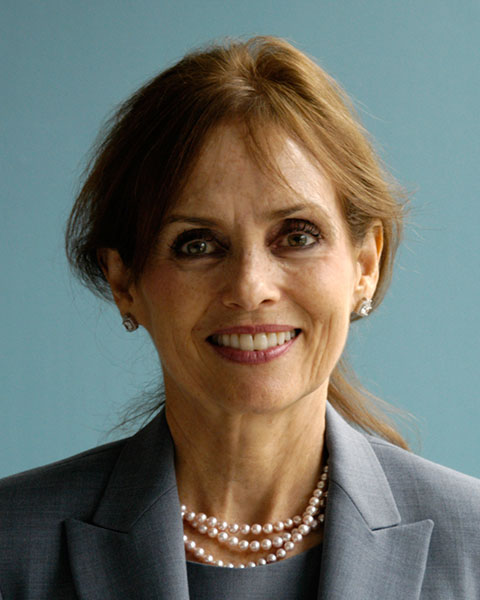By Dr. Maria de los Angeles Crummett
Senior Advisor to the Fulbright Scholar Program
 Under the dramatic heading of The Internationalization Imperative in Turbulent Times, AIEA’s annual conference brought together senior international officers from over 45 countries, including a delegation from Nigeria, for three days of thought-provoking and stimulating sessions in Washington, D.C., on February 18 to 21.
Under the dramatic heading of The Internationalization Imperative in Turbulent Times, AIEA’s annual conference brought together senior international officers from over 45 countries, including a delegation from Nigeria, for three days of thought-provoking and stimulating sessions in Washington, D.C., on February 18 to 21.
As the Senior Advisor for the Fulbright Scholar Program at IIE, I organized and facilitated a panel focused on how the Fulbright Program can be used as a tool to internationalize a campus: Fulbright: Building Bridges in Tempest and Calm. Three universities representing the spectrum of U.S. higher education shared their perspectives: The Ohio State University, a large public research university; Pima Community College, a two-year college in Tucson, Arizona with an emphasis on workforce development and continuing education; and Ana G. Mendez University, a private university and pioneer in dual language education with campuses in Puerto Rico, Florida, Maryland, Washington, DC, and Dallas.
Recognized as a top institution producer of Fulbright Scholars, The Ohio State University sees Fulbright as a critical component of campus internationalization. Joanna Kukielka-Blaser, director of OSU’s international office, presented the preliminary results of a campus-wide survey on the Fulbright Scholar Program with responses from nearly 400 faculty, staff, and administrators including Fulbright alumni. The survey results demonstrated consistent evidence of the major impact the program has had on teaching, research and service.
Ricardo Castro-Salazar, vice president for international development at Pima Community College, emphasized the importance of engaging with the Fulbright Program through a range of programs tailored to institutions with less access to internationalization resources. Pima has been a leader on this front utilizing the Outreach Lecturing Fund and the Scholar-in-Residence Program to bring Fulbright Visiting Scholars to campus. Dr. Castor Salazar also participated in the 2016 Russia Community College Administrator Seminar leading to several partnerships with Russian institutions.
David Méndez Pagán, vice president for international affairs, Ana G. Mendez University, addressed the ‘tempest’ component in the session title with an overview of the devastating impact of Hurricane Maria on higher education in Puerto Rico. Now an acknowledged leader in crisis management and intervention, the Puerto Rico campus is a living ‘lab’ where the tempest has been transformed into opportunities for international collaboration. Campus administrators and faculty are engaging with Fulbright to bring visiting scholars to campus with expertise in public health, economic development, and ecotourism – all areas heavily affected by the hurricane. Faculty from Ana G. Mendez will also be seeking opportunities abroad through the Fulbright Scholar and Specialist programs to build a network of new relationships that can support recovery efforts and beyond.
The session elicited a rich discussion in which participants addressed which strategies, including Fulbright, best support internationalization at research, two-year and teaching institutions. Adriana Gaviria, the Executive Director of the Fulbright Commission in Colombia, emphasized Fulbright’s steadfast role in contributing to the internationalization imperative in a variety of higher education contexts.
As other conference sessions noted, the dynamic and disruptive tendencies of globalization will continue to shape internationalization efforts. Institutions that address a range of strategies for comprehensive internationalization, implementing those that foster collaborations and bridge differences, will most likely be able to weather ‘turbulent times’. And Fulbright remains a partner in advancing sustainable, mutually beneficial higher education internationalization goals.